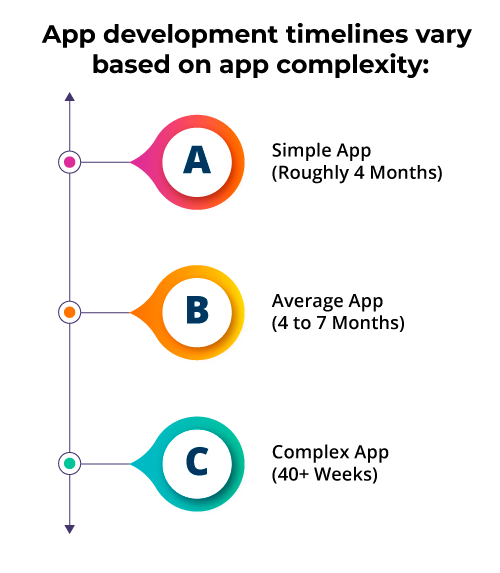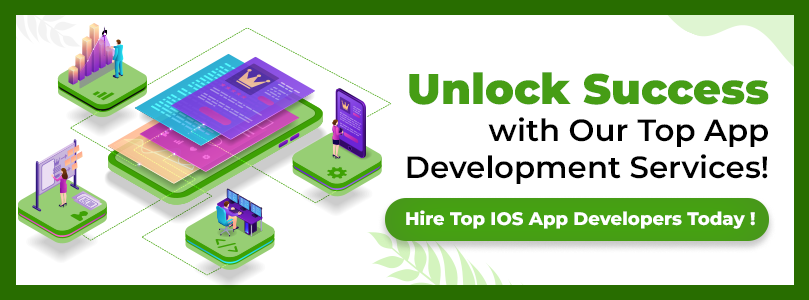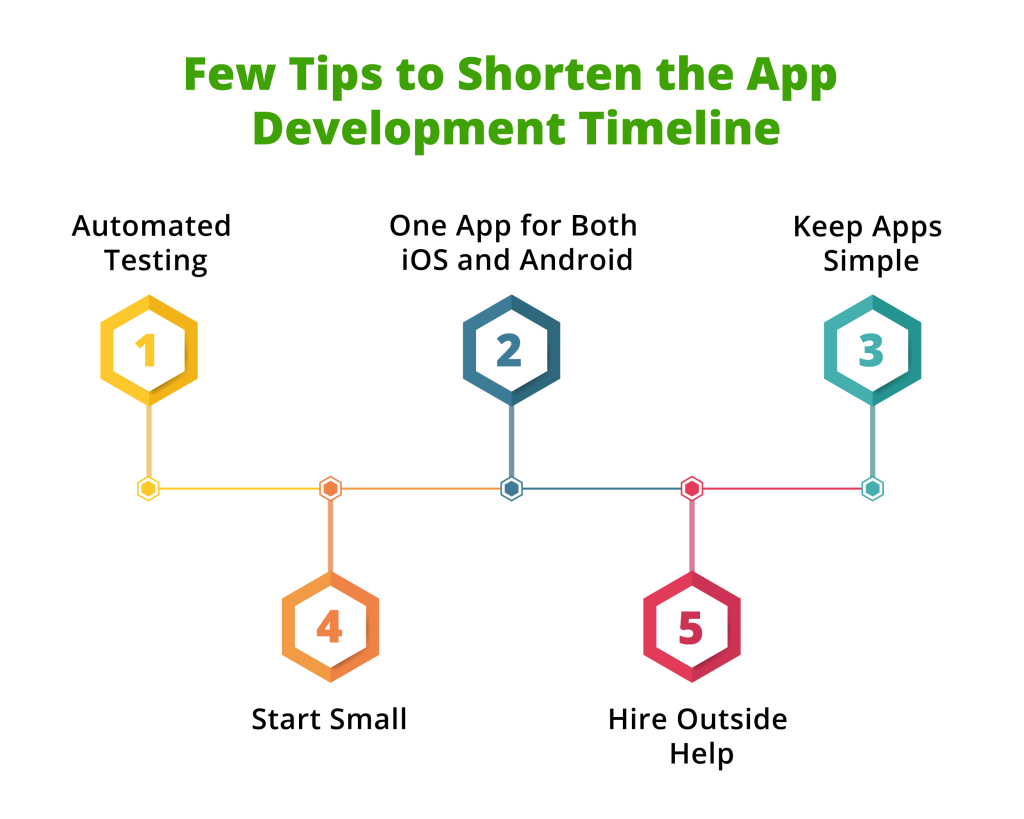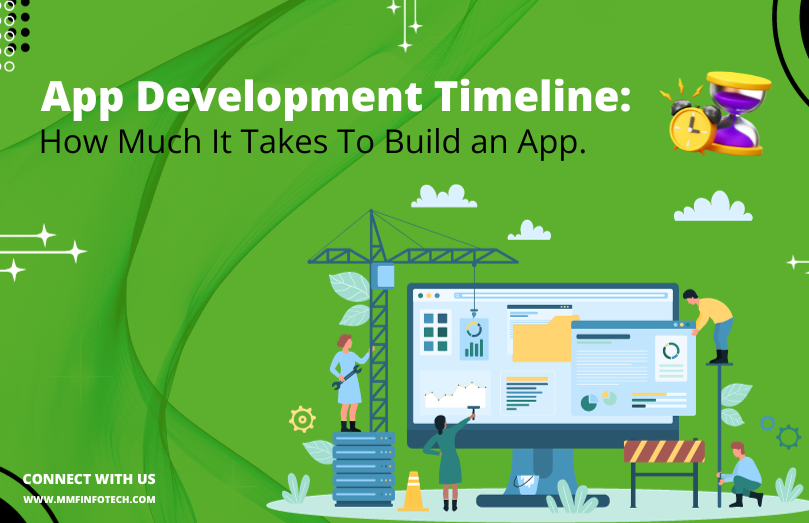Mobile app development has become one of the most important aspects of any business these days. You may have seen this widely that a big share of businesses have their own mobile apps, and the number of times they have been downloaded exceeds 350 billion downloads worldwide. Be it a small start up, or an established enterprise, the craze of developing mobile apps is crazy. Mobile apps are the revolution which is going to raise the consumer demands, enhancing the business operations. Interesting no, you may be wondering how long does app development take? Well let’s dive in and know the application development timeline.
What is Mobile App Development?
Software created specifically for mobile devices like smartphones and tablets is known as mobile app development. Both code and app design are involved. Mobile apps, as opposed to conventional software development, have the rare ability to make use of a device’s natural features. Mobile apps are the main way for people and businesses to access the internet in the modern world. Organizations must create in-demand mobile apps in order to maintain their competitiveness and satisfy the needs of their clients, partners, and personnel.
The Art of Crafting Mobile Apps is a Game-Changer for Business
Due to the booming worldwide mobile app market, which is anticipated to expand at a Compound Annual Growth Rate (CAGR) of 11.5% from 2020 to 2027, businesses should think about developing mobile apps. In addition to improving user engagement, mobile applications are essential for creating and sustaining brand identity. They facilitate connections with customers, making it easier for them to acquire business information, and ensuring that they are aware of brands and promotions. The following are the main justifications for why mobile apps are crucial for business growth:
Access to a variety of internet channels, including social media, is made possible via mobile apps, allowing firms to connect with a variety of market groups. Additionally, they make it easier for clients to receive push notifications and share data, distribute coupons, and participate in surveys.
Improved Accessibility: Mobile apps give users immediate access to information about products, services, and procedures, fortifying relationships with customers. Additionally, they enable companies to immediately notify customers about new and modified products.
Increased Sales: Mobile apps increase brand visibility and draw in new customers by pushing products and providing thorough descriptions. By 2025, demand for and sales of mobile apps are anticipated to total $613 billion. Apps are quite good at drawing attention to a product’s distinctive features.
Let us now see the Application Development Timeline
Understanding the mobile app development process involves a series of interconnected stages that play a crucial role in estimating the project timeline. It begins with the planning stage, lasting 2-3 weeks, which sets the project’s budget and expectations. The subsequent business analysis phase, also taking 2-3 weeks, identifies project requirements and aligns them with business goals. The design and pre-development phase, spanning 5-7 weeks, includes UX and UI design, focusing on layout, aesthetics, and cross-platform consistency. The development stage, ranging from 8-10 weeks, involves back-end and front-end development, followed by a 2-week testing phase. Finally, the app undergoes finalization and launch procedures for 2 weeks before entering a post-launch maintenance phase, lasting 2 weeks as well. This comprehensive mobile app development process ensures the creation of successful, user-friendly applications for businesses.
How Long Does it Take to Develop a Mobile App?
Estimating how long it takes to create an app is hard because every app is different. The time it takes depends on things like how complicated the app is, how it looks and feels, what it can do, and whether it uses other services. How you choose to build it also matters. Simple apps can be done more quickly, maybe in a few months, while really complex ones can take more than nine months. Along with that, cost to build an mobile app also depends on a few of the said things. So, how long it takes depends on what the app needs to do and how fancy it needs to be.
App development timelines vary based on app complexity:

- Simple App (Roughly 4 Months): These apps frequently include five or more screens, communicate with few external databases, and don’t gather substantial user analytics. Applications for synchronizing time zones and simple note-taking are two examples.
- Average App (4 to 7 Months): The average app has about ten screens, has social network authorization, integrates with servers or websites, has personal accounts, and may also have payment mechanisms. Examples include booking systems and advanced e-commerce platforms with 3D product views.
- Complex App (40+ Weeks): Complex apps might take over 40 weeks to construct, depending on the scope of the project. They include cutting-edge elements like augmented reality, artificial intelligence, special user interfaces, machine learning, real-time synchronization, database integration, animations, and more. Uber, Telegram, and Google Drive are a few examples.
Factors Affecting the App Development Timeline
Estimating how long it takes to make an app is tricky because there are many things to consider:
- App Complexity: The more complicated the app, with lots of advanced features and connections, the longer it takes. For example, making an e-commerce app that can handle shopping, payments, tracking orders, and user profiles is a time-consuming task.
- Team Size and Skills: Having more people on the team who are really good at what they do can speed things up. The skills and experience of the team members also matter.
- Testing: It’s crucial to check the app for problems and fix them, but this takes time. There are tools that can help with testing, but setting them up also requires some time.
- Platforms and Devices: If you want your app to work on different systems like Android and iOS and on various devices like phones and tablets, it adds more time to the project.
- Changes and Revisions: Making lots of changes to how the app looks and works can slow things down and make the project take longer and cost more. Having a clear plan from the start can help manage changes and keep things on track.

Few Tips to Shorten the App Development Timeline
Companies want to make apps faster and use fewer resources. They do this by:

- Automated Testing: Automated testing involves using machines to quickly identify and resolve app issues, allowing developers to concentrate on more crucial tasks, streamlining the development process.
- One App for Both iOS and Android: Creating a single app that functions on both iOS and Android platforms is a cost-effective strategy, reducing development time and expenses.
- Keep Apps Simple: Simplifying app features and functions is advisable since complex apps demand more time to develop. It’s best to include only essential elements to expedite the development process.
- Start Small: Initiating app development with a basic version enables user feedback collection, potentially accelerating development by 30% and aligning the app with user preferences.
- Hire Outside Help: Outsourcing app development to external firms can save time and effort, particularly when incorporating new features or launching on various devices, streamlining the development process.
How MMF Infotech Helps You with Mobile App Development
It is the responsibility of the mobile app design and development company, to deliver top notch mobile app development services. Creating a mobile app can help businesses grow by keeping up with what customers want. But how well the app is made is really important. Our team of experts is here to help your app succeed, from the start to after it’s launched. We at MMF Infotech, guide you through the whole process and share insights about the market to make sure more people use your app.
Understanding the mobile app development timeline, the factors that influence it and the strategies to shorten the timeline are all essential for businesses looking to take advantage of the mobile apps for growth and success in the digital era.


